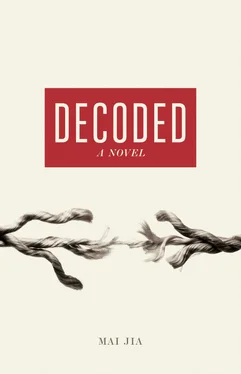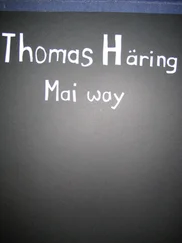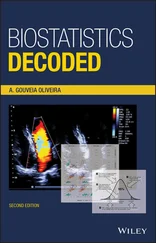Mai Jia - Decoded
Здесь есть возможность читать онлайн «Mai Jia - Decoded» весь текст электронной книги совершенно бесплатно (целиком полную версию без сокращений). В некоторых случаях можно слушать аудио, скачать через торрент в формате fb2 и присутствует краткое содержание. Год выпуска: 2014, Издательство: Allen Lane, Жанр: Современная проза, на английском языке. Описание произведения, (предисловие) а так же отзывы посетителей доступны на портале библиотеки ЛибКат.
- Название:Decoded
- Автор:
- Издательство:Allen Lane
- Жанр:
- Год:2014
- ISBN:нет данных
- Рейтинг книги:3 / 5. Голосов: 1
-
Избранное:Добавить в избранное
- Отзывы:
-
Ваша оценка:
- 60
- 1
- 2
- 3
- 4
- 5
Decoded: краткое содержание, описание и аннотация
Предлагаем к чтению аннотацию, описание, краткое содержание или предисловие (зависит от того, что написал сам автор книги «Decoded»). Если вы не нашли необходимую информацию о книге — напишите в комментариях, мы постараемся отыскать её.
Decoded — читать онлайн бесплатно полную книгу (весь текст) целиком
Ниже представлен текст книги, разбитый по страницам. Система сохранения места последней прочитанной страницы, позволяет с удобством читать онлайн бесплатно книгу «Decoded», без необходимости каждый раз заново искать на чём Вы остановились. Поставьте закладку, и сможете в любой момент перейти на страницу, на которой закончили чтение.
Интервал:
Закладка:
On 14 January 1970, late in the afternoon, in the care of Vasili, Rong Jinzhen, this now broken and tormented man, was brought back to the high-walled compound of Unit 701, thus bringing to a close this part of the story.
In the End
1
Endings are also beginnings.
For this fifth section — a following-up report as it were — I want to provide some supplementary details about Rong Jinzhen’s life. I feel this current section functions much like a pair of hands behind the scenes, one touching upon the past of the story, the other stretching out towards the future. Both hands have been extremely industrious; they have stretched out very far and very wide. They have been fortunate, they have touched upon something very real, very exciting — something akin to finally catching hold of a long sought-after answer to a rather troublesome riddle. In fact, all the various mysteries and secrets included in the previous four sections, even though they might have lacked a certain splendour, will have their true brilliance revealed in what follows.
What is more, this division purposefully disregards plot and narrative conventions; it disregards literary mood. I make no attempt to present a unified coherent story. My intention has been rather skewed and varied. It may seem that this chapter endeavours to challenge traditional literary norms, but in truth I am only surrendering to the vicissitudes of Rong Jinzhen’s story. What’s strange, however, is that after I decided to surrender to his tale, to set myself at its mercy, I felt profoundly at ease, terribly satisfied, as though I had won some victory in battle.
But surrender is not the same as giving up! Upon reading this entire section, I hope you will come to realize that the revelations presented herein were provided by the creator of BLACK. Ah, but perhaps I’ve said too much. Still, to be honest, this is how it is: the pages that follow pulled me this way and that — and they will do the same to you. It’s as though by witnessing Rong Jinzhen fall into madness, I too have gone mad.
Back to business. .
In fact, there have been some people who have raised suspicions about the veracity of this story. Their suspicions provoked me to write this final part.
I used to think that lulling the reader into believing that a story was actually real wasn’t the most essential aim in writing fiction; it was something you could do without. But this story. . this particular tale, well, it requires this belief, it hungers to be trusted. That’s because, in the end, it is unquestionably a real story. In order to preserve this original essence, I’ve had to take many risks, most notably with the plot. Oh, I could have relied on my imagination and spun an elaborate tale to tie up all the loose ends, or even employed some convenient narrative sleight of hand to finish things up. But an intense desire — a passion — to protect the spirit of the story prevented me from taking this route. Therefore I can say that, if the story seems to suffer from some chronic malaise, the roots of this disease do not emanate from this lowly narrator, but rather from the characters and the lives they lived. This of course is not wholly beyond the realm of imagination. After all, logically speaking — or, let’s say, to speak from experience — the possibility that one will encounter some altogether unforeseeable chronic illness is a very real one. There is really nothing one can do.
I must stress, therefore, that this story is historical; it is not some imaginary tale. What I have written has been gleaned from the taped transcripts I have obtained; the factual core remains intact. You can understand — and I hope forgive me — for adding some narrative framing and fictional elements such as personal names and places, and of course the descriptions of the skies, the landscapes. There may be some errors regarding the exact times when events took place; of course, certain parts of the story that are still classified have been omitted; at times I may have overdone things with respect to the inner thoughts of the characters. But I had no choice in this matter. After all, Rong Jinzhen was a man thoroughly absorbed in a fantasy world:
he did nothing but crack various ciphers, and because this work was top-secret, the general public couldn’t know about it. That’s how it is. Additionally, I must admit that it wasn’t Vasili who ultimately discovered Rong Jinzhen at the paper mill, or printing works, or wherever it was in M county. Rather it was the Director of Unit 701 who personally saw to the matter: he brought Rong Jinzhen home. Vasili, over the course of those few days and because of the strain of what had happened, had actually fallen dreadfully ill and could do very little. The Director, however, died ten years ago. Furthermore, even before he passed away, he would, by all accounts, refrain from raising the issue of what had happened then, almost as if he felt sorry for Rong Jinzhen. Some people said it was because he felt guilty about how he had treated Rong Jinzhen’s madness, and as death drew near, he blamed himself very much. I’m not sure if he was right to feel guilty or not, all I know is that his self-recrimination made me feel even more regret for how things turned out for Rong Jinzhen. Getting back to our story, there was one other person who had accompanied the Director on that fateful day: his chauffeur. People said that he was a very accomplished driver but functionally illiterate.
Hence we can’t be sure if it was a ‘printing works’ or a ‘paper mill’ where they found Rong Jinzhen. From the exterior, they both look very much the same, and for an illiterate person who had only seen things in passing, failing to distinguish between the two is quite to be expected. In my discussions with him, I was initially at great pains to help him understand that there are distinct differences between a paper mill and a printing works. For instance, the former would have several towering smokestacks whereas the latter would not. With respect to smells, a printing works would have the distinct odour of printing ink hanging in the air, whereas a paper mill would simply have turbid water spewing forth; there would be a decided lack of any pungent odour. Despite this explanation, however, the driver still could not provide me with precise details. Instead, his speech remained consistently evasive and unclear. Sometimes I thought that his equivocation was probably due to the difference between those who are educated and those who are not. For those less educated, judging what is real and what is not, what is right and what is wrong, must be fraught with difficulties and obstacles. And for this doddering, senile old man, whose love of tobacco and drink had eaten away at his memory — a decrepitude that would terrify the stoutest individual — speaking about something that had happened decades back was extremely difficult. But he was adamant that the incident took place in 1967 and not in 1969. Needless to say, this mistake made me doubt him all the more. As a result, for the ending, I decided I might as well take some liberties and have Vasili be the one who made his way to M county to find Rong Jinzhen and bring him home. I have given you these details as I felt the episode needed clarification.
I have to accept that the ending is the most unreal part of the entire story.
I sometimes feel regret for having fabricated it so.
The second reason for me to write this final section was that some people have shown great interest in finding out about what happened to Rong Jinzhen after he returned to Unit 701. This has served as encouragement for me.
This concern also implies that you, my reader, would like me to tell you how I understand Rong Jinzhen’s story. How I appreciate his tale.
Читать дальшеИнтервал:
Закладка:
Похожие книги на «Decoded»
Представляем Вашему вниманию похожие книги на «Decoded» списком для выбора. Мы отобрали схожую по названию и смыслу литературу в надежде предоставить читателям больше вариантов отыскать новые, интересные, ещё непрочитанные произведения.
Обсуждение, отзывы о книге «Decoded» и просто собственные мнения читателей. Оставьте ваши комментарии, напишите, что Вы думаете о произведении, его смысле или главных героях. Укажите что конкретно понравилось, а что нет, и почему Вы так считаете.












